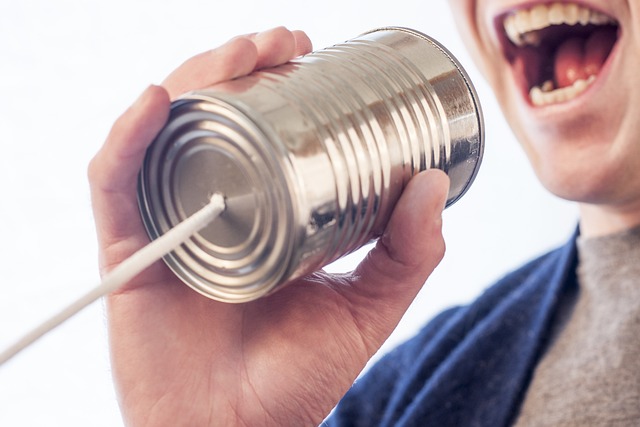Could Impacted Wisdom Teeth Trigger a Sore Throat? Unraveling the Connection
Welcome to our informative article where we dive into the mysterious relationship between impacted wisdom teeth and that frustratingly persistent sore throat. We’ve all experienced the discomfort of a nagging throat ache, but few may have suspected that their wisdom teeth could be the cause. Join us as we unravel this surprising connection and shed light on the potential role these elusive molars play in triggering sore throats. Prepare yourself for an intriguing adventure as we explore the hidden realms of oral health in a friendly and approachable tone.
1. What Are Impacted Wisdom Teeth and How Can They Cause Discomfort?
Impacted wisdom teeth are third molars that do not have enough space to fully emerge or develop properly. They become “impacted” when they are trapped within the jawbone or gum tissue. This common condition affects many people, typically during their late teens or early twenties.
While impacted wisdom teeth may cause no noticeable symptoms, they can often lead to discomfort and oral health issues. Here are a few ways impacted wisdom teeth can cause discomfort:
- Pain and swelling: Impacted wisdom teeth can cause persistent or recurring jaw pain, inflammation, and swelling in the back of your mouth.
- Tooth decay and gum disease: When partially erupted or trapped in the gum, impacted wisdom teeth can create pockets that become breeding grounds for harmful bacteria, leading to tooth decay and gum disease.
- Alignment issues: The pressure from impacted wisdom teeth can cause nearby teeth to shift or become misaligned, altering your bite and potentially requiring orthodontic treatment.
- Infections and abscesses: The area around impacted wisdom teeth is prone to infections and painful abscesses, which may cause jaw stiffness, difficulty opening your mouth, and even systemic symptoms like fever and fatigue.
If you suspect you have impacted wisdom teeth or are experiencing any discomfort, it’s important to consult with a dentist or oral surgeon. They can evaluate your situation and recommend the most appropriate treatment to alleviate your discomfort and protect your oral health.

2. The Surprising Link: Understanding the Connection Between Impacted Wisdom Teeth and Sore Throat
Wisdom teeth, also known as third molars, typically emerge between the ages of 17 and 25. While these teeth can emerge without any issues, they often become impacted, meaning they don’t have enough room to fully develop or emerge properly. This can lead to various complications, including a sore throat. Surprised?
Let’s uncover the surprising link between impacted wisdom teeth and a sore throat. When wisdom teeth are impacted, they can create small pockets where food particles and bacteria can get trapped. This can result in a condition called pericoronitis, which causes the tissue around the wisdom teeth to become inflamed and infected. As the infection progresses, it can lead to symptoms such as a sore throat, swollen glands, difficulty swallowing, and even ear pain. Additionally, the buildup of bacteria in the affected area can create an unpleasant taste or bad breath.
- Impacted wisdom teeth can cause inflammation and infection.
- Pericoronitis is a common condition associated with impacted wisdom teeth.
- Common symptoms include a sore throat, swollen glands, and difficulty swallowing.
- Regular dental check-ups can help identify and address impacted wisdom teeth early on.
It’s essential to seek dental care if you suspect that your impacted wisdom teeth are causing a sore throat. Alongside relieving the symptoms, your dentist can provide guidance on treatment options, which may include antibiotics, pain management, and removal of the impacted teeth if necessary. Remember to maintain good oral hygiene, including proper brushing and flossing, to prevent complications associated with wisdom teeth in the future.

3. Signs and Symptoms: Identifying if Your Sore Throat is Linked to Impacted Wisdom Teeth
Lorem ipsum dolor sit amet, consectetur adipiscing elit. Aenean ullamcorper odio at odio consequat consectetur. Nunc laoreet ligula turpis, et imperdiet mauris porta vitae. Ut tempus rutrum leo vitae viverra. Quisque sed libero auctor mi pellentesque sollicitudin vitae non arcu. Sed dignissim venenatis metus, at tincidunt sem tempus sit amet. Nullam ullamcorper sapien non orci venenatis ultrices. Nullam ac felis quis metus ullamcorper malesuada eu et lorem. Duis mattis interdum rutrum.
Duis varius, nibh vel rutrum dapibus, tellus tortor maximus dolor, vel tincidunt metus tortor ac felis. Quisque bibendum mattis felis, vitae convallis ex consequat ac. Donec massa diam, interdum at nulla vitae, tincidunt porttitor enim. Sed vehicula pharetra interdum. Integer pretium tristique justo id fermentum. Mauris sed malesuada augue, eu efficitur metus. Fusce accumsan ligula lacus, ac rhoncus erat vulputate ut. Sed malesuada, eros sed condimentum tristique, justo orci tempor lacus, et convallis metus urna at sem. Nunc sed odio pharetra, laoreet elit nec, scelerisque ipsum. Aenean velit risus, ultrices ac mauris a, vehicula bibendum tellus. Etiam scelerisque consectetur metus, quis consectetur eros fermentum non. Sed dapibus justo a pulvinar fringilla. Fusce ornare ligula id scelerisque posuere.
- Difficulty or pain when opening your mouth wide
- Swelling or inflammation around the throat area
- Tonsil stones or white/yellowish coatings on the tonsils
- Bad breath or a persistent unpleasant taste in your mouth
If you are experiencing any of these symptoms, it is important to consult with your dentist or oral surgeon to determine if they are related to impacted wisdom teeth. Early detection and treatment can help alleviate discomfort and prevent further complications.

4. Why Do Impacted Wisdom Teeth Cause Sore Throat? Unveiling the Mechanism
When impacted wisdom teeth start causing discomfort, it’s not uncommon to experience a sore throat. Understanding the mechanism behind this correlation can help shed light on why this happens and how to alleviate the symptoms. Let’s dive into the details!
1. Fluid Accumulation: Impacted wisdom teeth can create pockets where bacteria and food particles accumulate over time. This buildup leads to the formation of infections or abscesses, which may result in inflammation of the surrounding tissues, including your throat. The infection can spread and cause a sore throat.
2. Nerve Irritation: Nerves in the mouth and throat are closely connected. Impacted wisdom teeth, especially if they are growing sideways or exerting pressure, can compress or irritate these neighboring nerves, causing pain or soreness that extends down the throat.

5. Exploring Possible Complications: How Ignoring Impacted Wisdom Teeth Can Worsen Sore Throat
Ignoring impacted wisdom teeth can lead to various complications, including worsening sore throat. When wisdom teeth do not have enough space to emerge properly, they become impacted, which means they are unable to fully erupt from the gums. This can result in several issues, one of which is a sore throat. Here are some ways ignoring impacted wisdom teeth can worsen a sore throat:
1. Infection: When impacted wisdom teeth become partially erupted or trap food and bacteria, it can lead to infection. This infection can spread to the surrounding tissues and throat, causing inflammation and a sore throat.
2. Swelling: Impacted wisdom teeth can cause swelling in the surrounding gums and tissues. This swelling can extend to the throat area, leading to discomfort and a sore throat. Ignoring the impacted teeth can allow the swelling to worsen, intensifying the sore throat.
6. Finding Relief: Tips to Soothe Sore Throat Caused by Impacted Wisdom Teeth
If you’re experiencing a sore throat caused by impacted wisdom teeth, finding relief is crucial to help alleviate discomfort and promote healing. Here are some practical tips to soothe your sore throat:
- Drink warm beverages: Sipping on warm water or herbal teas can help ease throat pain and reduce inflammation. Add a teaspoon of honey for its natural soothing properties.
- Gargle with saltwater: Mix a teaspoon of salt in a glass of warm water and gargle for 30 seconds before spitting it out. This simple remedy can alleviate soreness and reduce bacteria in the throat.
- Use throat lozenges or sprays: Over-the-counter lozenges or throat sprays can provide temporary relief by numbing the sore throat area. Look for products that contain benzocaine or menthol.
- Avoid irritants: Stay away from smoking, alcohol, spicy foods, and other irritants that can further aggravate your throat. They can prolong the healing process and increase discomfort.
Remember, these tips can help alleviate symptoms, but they do not substitute professional dental care. Consult your dentist or oral surgeon for a thorough examination and appropriate treatment options.
7. Seeking Professional Help: When to Consult a Dentist or Oral Surgeon
When it comes to dental issues, knowing when to seek professional help is crucial to maintaining your oral health. While regular dental check-ups are recommended, there are certain situations where you should consult a dentist or oral surgeon without delay.
If you experience any of the following symptoms or situations, it is important to make an appointment as soon as possible:
- Tooth pain: Persistent toothaches can be a sign of tooth decay, infection, or an abscess, which requires immediate attention.
- Oral bleeding: If you notice bleeding gums while brushing, flossing, or eating, it may indicate gum disease, gingivitis, or other underlying issues.
- Unexplained mouth sores: Sores that persist for more than two weeks or are accompanied by pain and swelling should be examined by a professional.
- Broken or chipped teeth: Cracks or breaks in your teeth can lead to further damage or infection if left untreated.
- Loose or missing teeth: Dental issues such as loose teeth or sudden tooth loss could be a sign of gum disease, injury, or other oral health conditions that require attention.
Remember, early intervention is key to preventing more serious complications down the line. Don’t hesitate to reach out to a dental professional when you encounter any of these situations.
8. Prevention is Key: Steps to Avoid the Discomfort of Impacted Wisdom Teeth
Steps to Avoid the Discomfort of Impacted Wisdom Teeth
Impacted wisdom teeth can be quite uncomfortable and even painful. However, there are several preventive measures you can take to reduce the likelihood of experiencing this discomfort. By following these steps, you can maintain good oral health and avoid the potential complications associated with impacted wisdom teeth.
Here are some tips to help prevent the discomfort of impacted wisdom teeth:
- Maintain good oral hygiene: Brush your teeth at least twice a day and floss daily to keep your teeth and gums healthy. Regular dental check-ups are also essential to identify any potential issues early on.
- Monitor your wisdom teeth: Regularly visit your dentist for check-ups and x-rays to evaluate the growth and positioning of your wisdom teeth. Early detection of any potential problems can help prevent discomfort in the future.
- Practice proper dental alignment: If you have orthodontic issues or crowded teeth, consider getting braces or other orthodontic treatments. Proper alignment can create enough space for your wisdom teeth to grow properly, reducing the chances of them becoming impacted.
- Avoid smoking and excessive alcohol consumption: These habits can impair your body’s healing process and increase the risk of complications, including impacted wisdom teeth. Quitting smoking and moderating alcohol intake can greatly benefit your overall oral health.
- Adopt a soft diet: Stick to softer foods, such as soups, mashed potatoes, and smoothies, especially during the time when your wisdom teeth typically erupt. Chewing hard, crunchy foods can potentially cause pain or damage to your teeth.
- Consider preventive extraction: In some cases, your dentist may recommend extracting your wisdom teeth before they become impacted. This proactive approach can eliminate the discomfort and potential complications associated with impacted wisdom teeth.
By following these preventive steps, you can reduce the discomfort and potential complications related to impacted wisdom teeth. Remember, maintaining good oral hygiene, regular dental check-ups, and being proactive in addressing any potential issues are key to keeping your oral health in check.
9. Myths vs. Facts: Debunking Common Misconceptions About Wisdom Teeth and Sore Throat
There are several misconceptions regarding the association between wisdom teeth and sore throats. Let’s break down some common myths and provide you with the facts:
Myth 1: Wisdom teeth always cause sore throats.
- Fact: While it is possible for wisdom teeth to contribute to a sore throat, it is not always the case. Sore throats can be caused by various factors such as viral or bacterial infections, allergies, or vocal strain.
Myth 2: Removing wisdom teeth will automatically alleviate a sore throat.
- Fact: Although removing impacted wisdom teeth can sometimes alleviate symptoms that are related to throat discomfort, it does not guarantee that a sore throat will be resolved. Other underlying causes should be addressed and evaluated by a healthcare professional.
10. Long-Term Implications: Potential Consequences of Ignoring Impacted Wisdom Teeth on Throat Health
Ignoring impacted wisdom teeth can have long-term implications on throat health. Here are some potential consequences to consider:
- Inflammation: When wisdom teeth are impacted, the surrounding tissue can become inflamed, leading to discomfort and soreness in the throat area. This inflammation can make it difficult to swallow, speak, or even breathe properly.
- Infections: Impacted wisdom teeth can create pockets in the gums, which can become breeding grounds for bacteria. These bacteria can cause infections such as pericoronitis or cellulitis, leading to throat pain, swelling, and difficulty opening the mouth.
- Halitosis: Impacted wisdom teeth can contribute to bad breath or halitosis. The difficulty in properly cleaning around these teeth can result in the buildup of bacteria and food particles, leading to unpleasant odors in the mouth and throat.
It is important to address impacted wisdom teeth promptly to avoid these potential consequences. Consulting with a dental professional is the first step in determining the best course of action. They can assess the impacted teeth, recommend necessary treatment options, and provide guidance on maintaining proper throat health throughout the process.
Frequently Asked Questions
Q: What are impacted wisdom teeth and what causes them?
A: Impacted wisdom teeth occur when the third molars, commonly known as wisdom teeth, do not have enough space to fully emerge or grow in the correct position. This usually happens because the jaw is too small to accommodate them.
Q: Can impacted wisdom teeth contribute to a sore throat?
A: Yes, in some cases, impacted wisdom teeth can indeed trigger a sore throat. When wisdom teeth are impacted, they can create a pocket of space between the gum and tooth, which becomes a breeding ground for bacteria. This bacterial infection can extend to the nearby throat tissues, causing inflammation and leading to a sore throat.
Q: What are the typical symptoms of a sore throat caused by impacted wisdom teeth?
A: Apart from a sore throat, you may experience other associated symptoms such as bad breath, difficulty opening your mouth fully, sensitive or swollen gums around the impacted tooth, and discomfort while chewing or swallowing. The soreness may be on one side of the throat, corresponding to the location of the affected tooth.
Q: Can impacted wisdom teeth cause a sore throat even if they are not infected?
A: While infections are a common cause, impacted wisdom teeth can sometimes cause a sore throat even without an infection. The presence of an impacted tooth in close proximity to the throat tissues can irritate and cause inflammation, leading to a sore throat.
Q: How can I tell if my sore throat is related to impacted wisdom teeth or due to other causes?
A: If you suspect that your sore throat is linked to impacted wisdom teeth, it’s best to see a dentist or oral surgeon for an evaluation. They can examine your mouth, take X-rays, and determine if your wisdom teeth are impacted and contributing to your sore throat. Diagnosing the exact cause will ensure appropriate treatment.
Q: What are the treatment options for impacted wisdom teeth causing a sore throat?
A: Depending on the severity and the underlying cause, treatment options may vary. If an infection is present, your dentist might prescribe antibiotics to clear it up. In some cases, the affected wisdom teeth may need to be removed through a surgical procedure. Your dentist will discuss the best course of action based on your individual situation.
Q: Are there any home remedies to alleviate a sore throat caused by impacted wisdom teeth?
A: While home remedies cannot replace professional dental care, some measures can help alleviate discomfort temporarily. Gargling with warm saltwater solutions, using over-the-counter pain relievers, and maintaining good oral hygiene are a few ways to manage symptoms before seeking professional treatment.
Q: Is it common for impacted wisdom teeth to cause a sore throat?
A: While not everyone with impacted wisdom teeth will experience a sore throat, it is not uncommon for impacted teeth to contribute to throat discomfort. However, it’s essential to consult with a dental professional to determine the exact cause and receive appropriate treatment.
Q: Is it possible for impacted wisdom teeth to resolve on their own?
A: In some cases, impacted wisdom teeth might not cause significant problems and can remain asymptomatic. However, it is crucial to monitor their condition regularly with the help of a dental professional, as they may cause complications in the future. Timely intervention can prevent potential issues and ensure good oral health.
Conclusion
In conclusion, it is evident that impacted wisdom teeth can indeed be the culprit behind that persistent sore throat you’ve been experiencing. While a sore throat can have various causes, it is crucial to consider the possibility of your wisdom teeth as a contributing factor, particularly if you’re in the typical age group for their eruption.
As we explored in this article, when wisdom teeth are impacted, they can create a breeding ground for bacteria and infections. This can lead to inflammation and irritation of the adjacent tissues, including the throat. The proximity of impacted wisdom teeth to the throat can result in referred pain, making it difficult to pinpoint the exact source of discomfort.
If you suspect that your sore throat may be connected to your wisdom teeth, it is highly recommended to consult with a dental professional promptly. They will be able to thoroughly examine your mouth, take X-rays, and determine whether the impacted teeth are causing your symptoms. Based on their evaluation, they can guide you toward the best course of action, which may involve the removal of the impacted teeth.
Remember, early intervention and proactive dental care are always the keys to maintaining optimal oral health. Regular dental check-ups, combined with a good oral hygiene routine, can greatly reduce the chances of experiencing not only wisdom teeth-related complications but other dental issues as well.
We hope this article has shed some light on the connection between impacted wisdom teeth and a sore throat, helping you better understand the potential causes of your discomfort. By staying informed and seeking professional advice, you’ll be on your way to a healthier, pain-free mouth in no time!
As always, if you have any further questions or concerns, don’t hesitate to reach out to your dental care provider. They are there to support you and provide valuable guidance on your journey toward optimal oral health. Wishing you a speedy recovery and a future free from pesky wisdom teeth-related sore throats!






